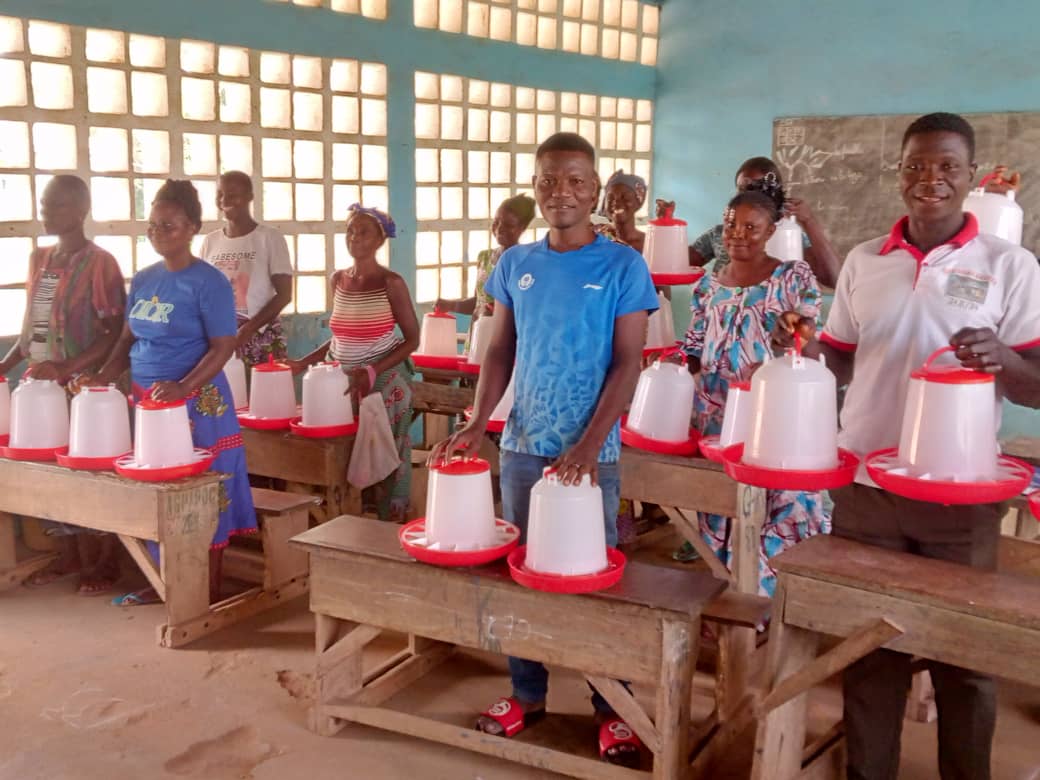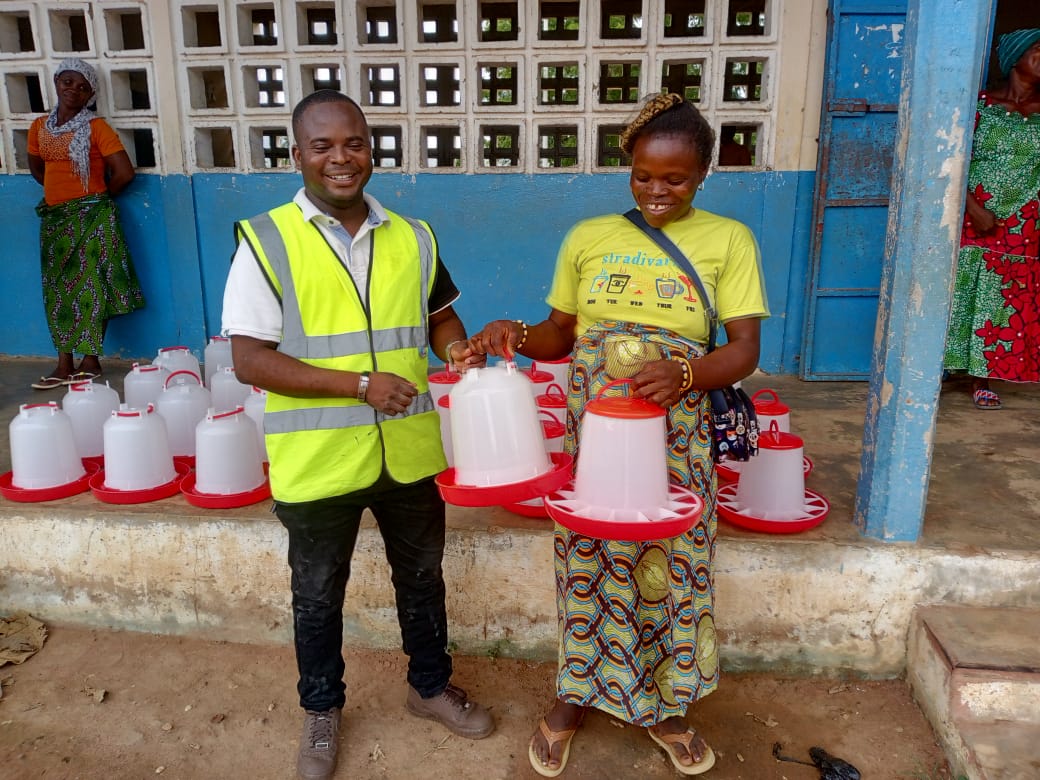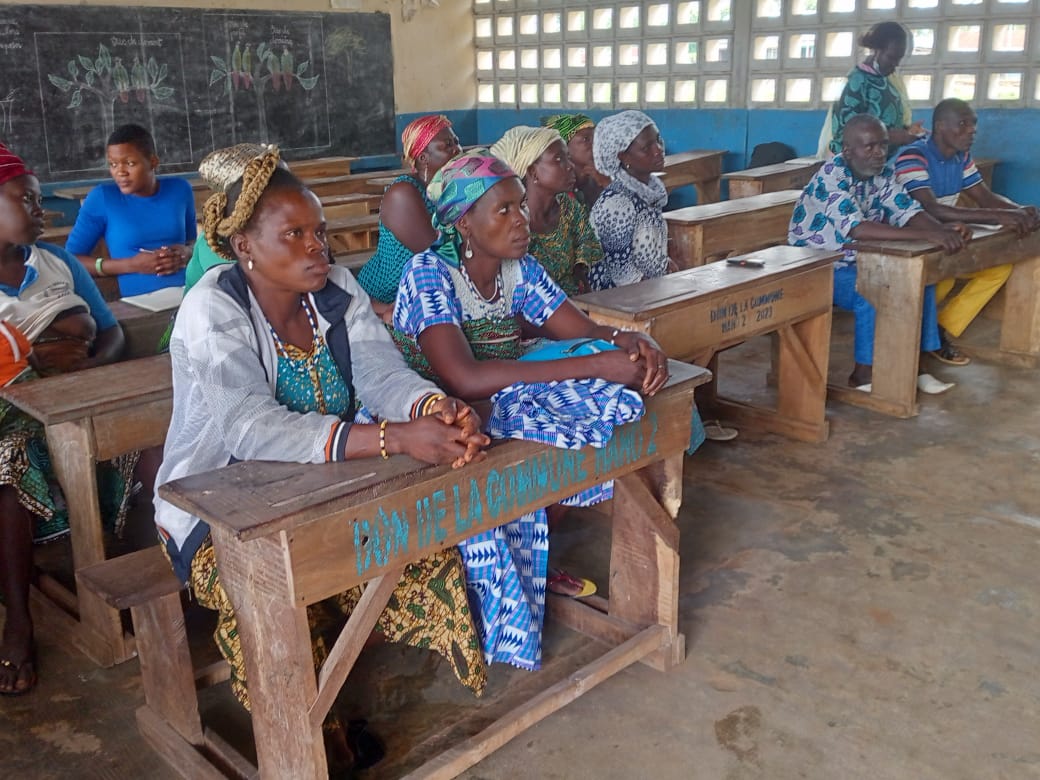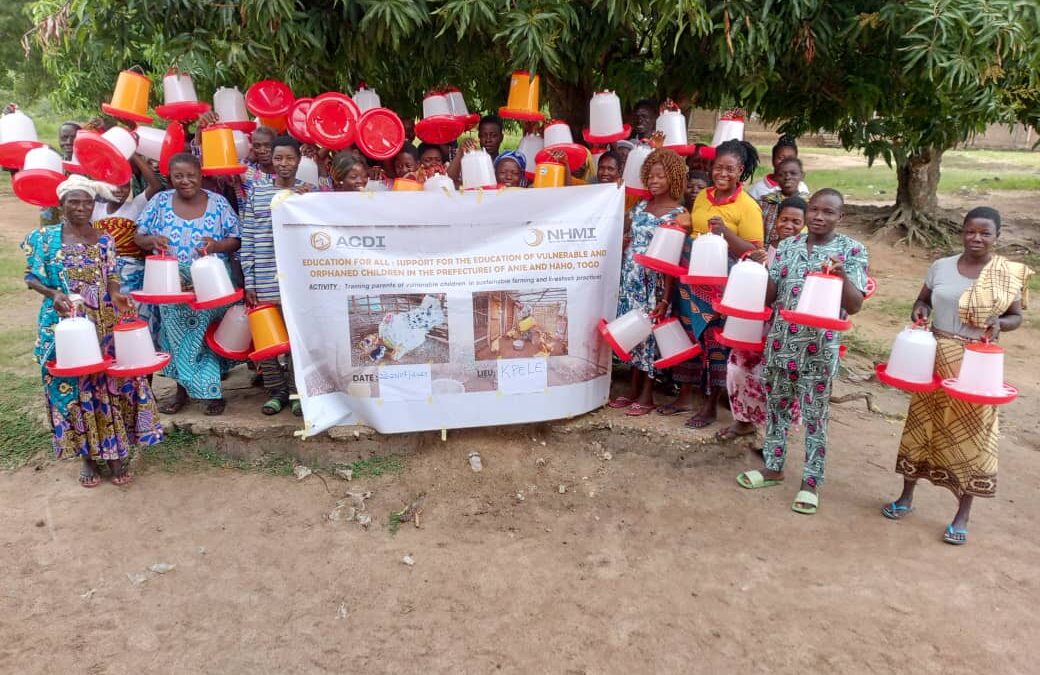The training was interactive and participatory. It was structured around brainstorming sessions, presentations of thematic modules, group discussions, practical case studies, and a field visit to concretely illustrate the techniques taught. The modules included in this training included:
The benefits of poultry farming: understanding the economic, nutritional, and social benefits of this activity.
Main challenges of poultry farming: diseases, mortality, access to feed, and climatic constraints.
Poultry housing: management techniques, hygiene, and safety.
Feeding and watering: nutritional needs of poultry and drinking water management.
Reproduction and rescue of young: incubation and chick care.
Main chicken diseases: identification and prevention.
Biosecurity measures in poultry farming: hygiene, isolation, disinfection, and input management. Each participant received a breeding kit consisting of a feeder and a drinker, making a total of 100 kits distributed.





